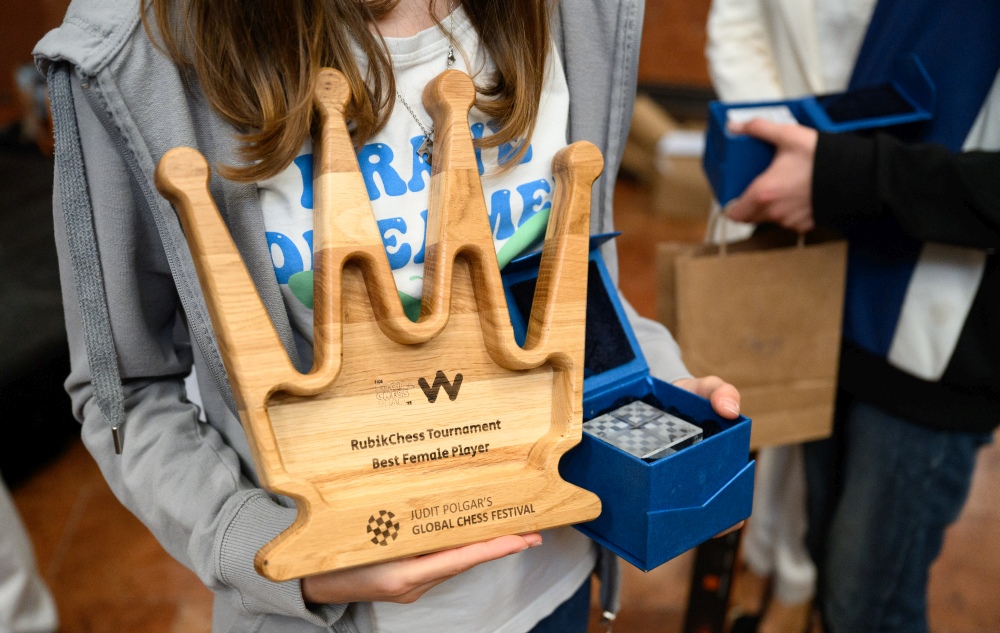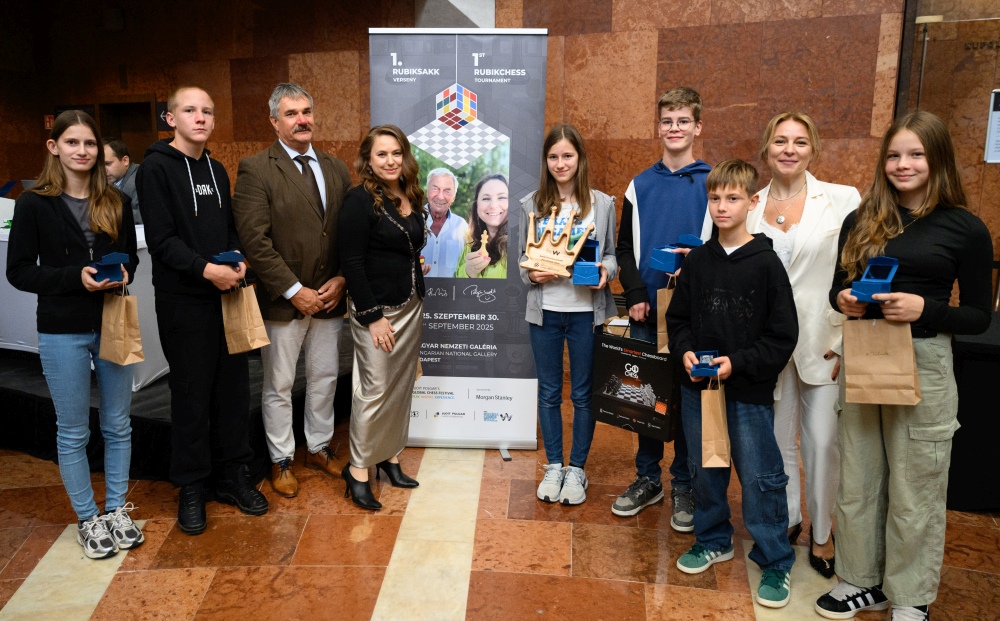
The 11th Judit Polgar’s Global Chess Festival was held with extraordinary interest this year at the Hungarian National Gallery. The celebration of chess attracted thousands of visitors, who could choose from thirty different programs in line with the festival’s triple motto: play, inspire, experience. Each year, this international event seeks to present the diversity of chess, its cultural values, and its community-building power in a unique format and setting.
One of this year’s novelties was the RubikChess competition, where fifty young mixed pairs tested their skills. The unusual combination of the two games sparked great interest, and registrations quickly filled up. Seeing the success of the event, it is not unlikely that RubikChess will become a permanent program of the festival in the future.
The FIDE Commission for Women’s Chess was proud to support the launch of the RubikChess competition, recognizing its unique emphasis on teamwork, creativity, and gender equality. With each team composed of one girl and one boy, the format reflects the Commission’s mission to create opportunities where talent knows no gender and collaboration strengthens performance. The presence of Commission Chairwoman Anastasia Sorokina, who also presented prizes to young talents at the festival, further underlined FIDE WOM’s commitment to initiatives that inspire the next generation and promote inclusion in chess.
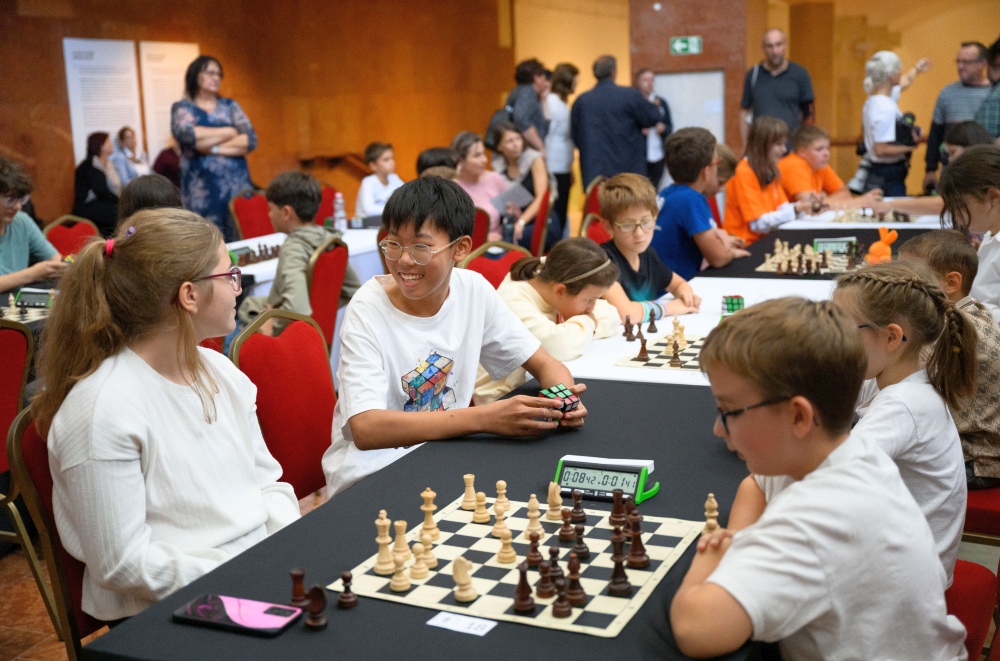
The festival also featured a special performance of Queen’s Trap by Chilean artist Juga, an audiovisual project developed in cooperation with the Commission, celebrating the power and creativity of women in chess.
Thanks to the online broadcast, hundreds of thousands followed the Community Simul, in which Judit Polgar played simultaneously on six boards against teams joining from different parts of the world — including the interactive digital learning platform Chessable and ChessIsForEveryone, along with a group led by a former world chessboxing champion.
Among younger audiences, the technological innovations showcasing the future of chess were especially popular. Highlights included the world’s first AI-powered chess robot capable of moving real pieces, and the magical GoChess board where the pieces move independently.
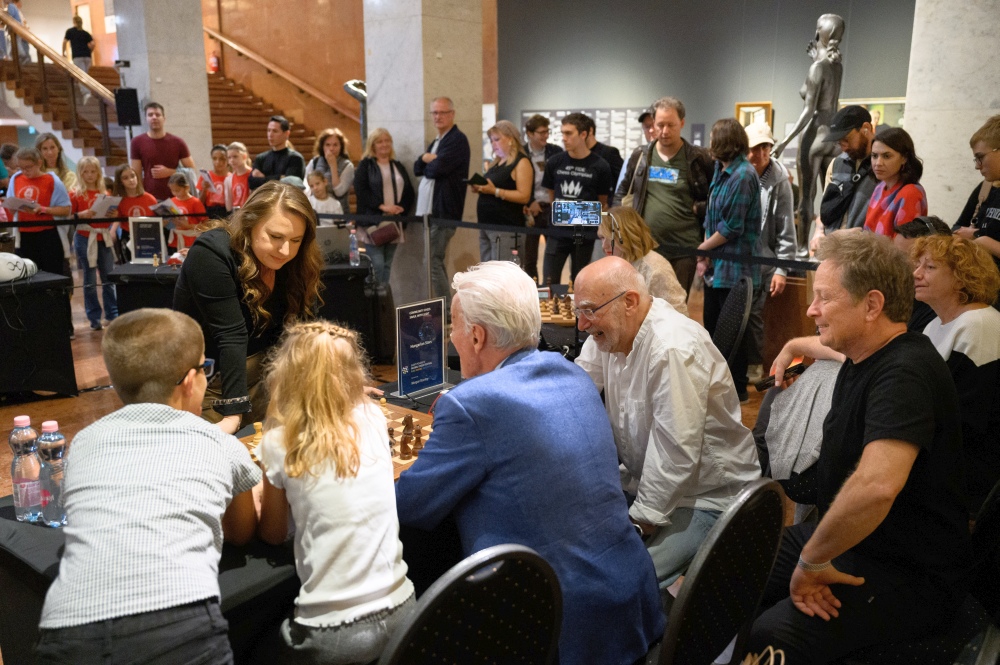
“For me, chess has always been about creation, discovery, and courage. These values are also reflected in my festival. I want to inspire the audience to step outside the usual boundaries and explore how many opportunities the game offers — not only on the board, but in life as well,” said Judit Polgár, founder and organizer of the Global Chess Festival.
Throughout the day, the festival audience enjoyed a wide range of special programs. On the Morgan Stanley stage, The Invisible Chess Game was presented, featuring Judit Polgár and her former teammate, Olympic silver medalist grandmaster Peter Ács, playing on a visual installation board designed by Samuel Havadtőy. Another historic highlight was the first-ever live human–robot chess match, in which young Hungarian chess talent Gellért Karácsonyi faced off against the SenseRobot.
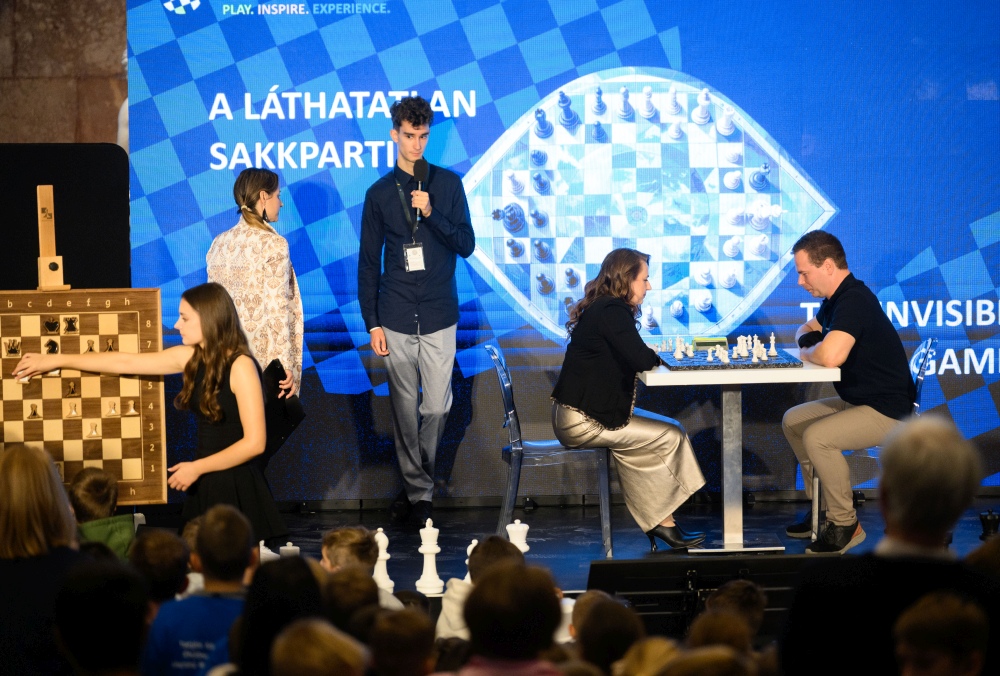
“This year’s Global Chess Festival once again showed how play can connect people across borders, generations, and cultures. It was truly inspiring to see our Morgan Stanley colleagues demonstrate at the chessboard the same creativity and strategic thinking that defines our everyday work in areas such as technology, risk management, and financial modeling. For us, supporting the festival was not only about celebrating chess, but also about fostering new connections and communities,” said Dániel Mayer, Head of Morgan Stanley’s Budapest office.
Competitive chess enthusiasts also found their place at the festival: the Play on the Square chess tournament was included in the program, while the Let’s Chess! workshops, led by International Master Ármin Juhász, provided opportunities to develop strategic thinking and deepen analytical skills. Visitors could also enjoy thrilling matches against renowned masters in the Challenge the Master! event.
In addition to the chess experience, museum educators of the Hungarian National Gallery enriched the day with thematic guided tours, allowing visitors to experience the worlds of art and chess together.
Since 2015, the Judit Polgar’s Global Chess Festival has been held annually, bringing the values of chess to millions worldwide. Beyond promoting the sport, the event builds bridges between cultures, generations, and communities through the universal language of chess. This year’s festival once again proved that chess is not merely a game, but an experience that inspires, connects, and brings joy to all ages.
Results:
RUBIK CHESS:
- Luca Miklós – Jan Marco Albers (Egyházaskozár-Bikali Primary School) (5/4.5 points)
- Hanna Miklós – Ádám Dunai (Egyházaskozár-Bikali Primary School) (4.5)
- Tábita Dan – Bálint Mázsár (Egyházaskozár-Bikali Primary School) (4)
Detailed results:
chess-results.com/tnr1263763.aspx?lan=1&art=1&rd=5&SNode=S0
Community Simultaneous:
Each of the six communities was defeated by Judit Polgár.
Chess on the Square Tournament:
- Máté Pápai (5/5 points)
- András Ilkó-Tóth (4.5)
- Róbert Major (4.5)
- Pavel Capek (4.5)
- Erik Czikiollai (4)
- Mihály Puskás (4)
Best U16 Girl: with 4/5 points, Sofi Lytvynenko (8 years old).
The prize was presented by Anastasia Sorokina, Chairwoman of the FIDE Commission for Women’s Chess (WOM).
Best U16 Boy: Máté Pápai (5/5 points)
Detailed results: s1.chess-results.com/tnr1263717.aspx?lan=1
Programmes: globalchessfestival.com/index.php/en/


